Video Premiere & Web-Exclusive Interview
Artist: MANIKA KAUR
Video: “Liberate Me”
WORLD MUSIC SONGSTRESS MANIKA KAUR PREMIERES BEAUTIFULLY HAUNTING “LIBERATE ME”
Manika Kaur is a leading contemporary performer of Sikh “Kirtan” music. As the very first person to place Kirtan in the World Music Charts Europe with views of her videos running in the millions, Manika’s music has received overwhelming praise from the global Sikh community while also transcending and touching the souls of music lovers from all walks of life throughout the world.
In April 2021, US-based Six Degrees Records (and Believe India) released her new album Ek (meaning ‘Oneness’).Just as love sometimes rises above definition and beyond what words can adequately express, Manika Kaur’s music soars beyond celestial boundaries. With a beautifully haunting voice that encompasses the rich textures and colors of sound—and travels beyond the barriers of language—her album Ek is at once healing and uplifting as it soothes the soul and invites the human spirit to bathe in the oneness of love, wisdom and truth.
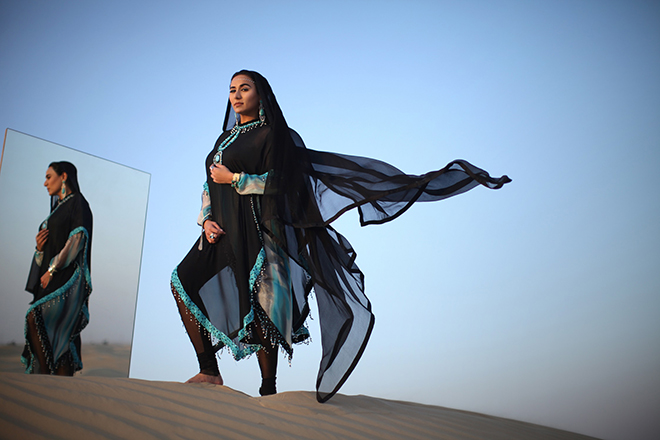
Manika Kaur’s music remains true to the venerated traditions of Kirtan and features some of the rarest instruments in the world, performed by the very best (and some of the only) remaining players of each. Every song on the album leads with one of these different and specific instruments accompanying her vocal, in order to showcase each item and to enhance the overall essence of the work. The traditional elements of the music are then combined with modern sounds, created by some of London’s most renowned music producers. This precarious balance has been handled with great care in order to ensure that neither factor outweighs the other. The result is a unique piece of art, as hypnotic as it is mesmerizing.
The amazing Singh Twins were commissioned to create new artwork for the release, which is also available as vinyl. 2020 saw the release of two special albums with renowned producer Martin ‘Youth’ Glover, who has remixed Manika’s work to create Journey (The Ambient Mixes) and Yoga Ambient Remixes. Youth also painted the album cover.
Kaur’s third album Sacred Words (2018) was able to highlight her music and culture to a wide range of demographics across the UK and internationally, while simultaneously attracting attention to the varied charitable endeavors of which she is a patron. She is one of the only female proponents of Kirtan, providing a new and unique perspective to the much revered genre.
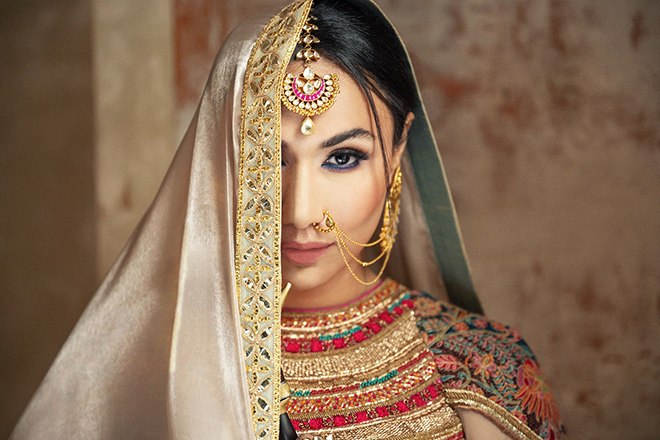
Kaur has made multiple appearances on BBC Television, performing live on The Saturday Show and being interviewed on the BBC News channel. She has also shared her words of wisdom on the coveted ‘Pause for Thought’ segment on BBC Radio 2, as well as being featured on Good Morning Sunday.
Manika Kaur donates all her profits to Kirtan for Causes, a charity she started to change the lives of impoverished children in Punjab with a special focus on education. Her work also shines a spotlight on the epidemic of farmer suicide, drug abuse and female infanticide in Punjab. Her work includes schooling (she personally sponsors the education of over two hundred children), building houses, providing books, laptops, phone and solar lights and meeting the needs of the most vulnerable.
We talked with Manika Kaur about how her journey continues to inspire others as they follow their own path and how her approach to music empowers listeners to search for the light within, celebrate the uniqueness and truth that lives inside and embrace compassionate living.
MANIKA KAUR Interview
with M Music & Musicians magazine publisher, Merlin David
How did the idea of “Liberate Me” come to you?
When I first began singing Kirtan at the age of 11, I barely understood what I was singing. Over time, I started to look for the translations of the Sikh hymns hoping to deepen my connection because I never learned Punjabi. In fact, I have no musical training and am self-taught in singing Kirtan and playing the harmonium. With every album I write, I always sing some parts in English and hope it will help listeners connect more deeply. As my understanding developed, it enabled me to truly flourish, to break free from low frequency thoughts and embrace the joy of compassionate living. I hope I can continue to have the self-realizations I need to keep growing in this direction.
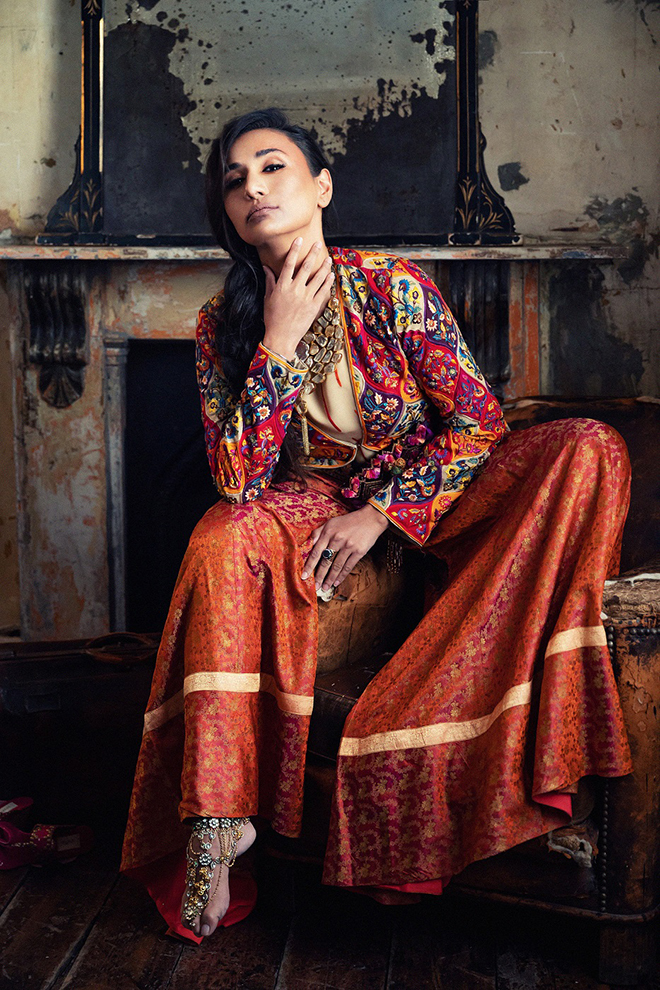
Tell us the process of writing “Liberate Me” to producing it for the album.
I’ve released 51 tracks, most of which are original compositions, so by now I do hear the music in my head and the way I want it to sound. Working with producer Oskar Vizan, whom I’ve known for years, really allowed me to freely express my thoughts and feelings. The original production features Francesca Ter-Berg on cello and Oskar on strings, keyboards and drum programming. It was beautiful, but it felt incomplete. I reached out to Ustad Sukhvinder Singh Pinky and we recorded him on several tracks for this album. I’ve followed his work for many years and loved his collaboration, A Meeting by the River, with Ry Cooder and Pt Vishwa Mohan Bhatt—which led to him receiving a Grammy award in 1994.
How did the video concept come together?
I wanted to show people that worship is beyond a stereotypical image that we often see. Spirituality is an expression of your inner divinity and when we express that energy compassionately and fearlessly—it becomes worship. It cannot be forced. It must arise naturally. This looks different on each person and that individual expression should be rejoiced. The journey to connecting with love, wisdom and truth involves first relinquishing blame and recognizing one’s ego.
How did the new album Ek evolve?
Ek meaning ‘one’ is about combating the false illusion of separation. In ‘oneness’ there is freedom and opportunity to realize we are each simply a DNA molecule within the body of humanity. In recognizing this truth, we begin to transcend and connect with our divine-self. With this album, I have pushed the boundaries further—finding new frequencies to send into the world that will hopefully resonate with those who are willing to journey within. Each track features a different instrument from the east and the west—such as sarangi, shehnai, dilruba, saxophone, guitar and cello. It’s made for quite a fascinating musical journey.
Which song are you especially glad was included in this collection?
Currently, I’m very excited about “Deh Siva”—about battling the ego. I’ve written a script and I am looking forward to creating a short and powerful film for the track.
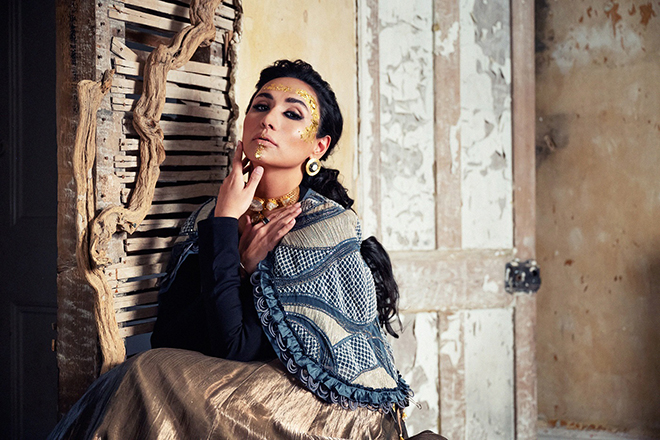
How does your devotion and search for truth manifest itself in your music?
My experience began when I started to acknowledge my ego—that was so carefully concealed within the shadows of my mind. Kirtan has been vital on this expedition. Singing and chanting these ancient love letters to God opens us up to our inner essence. This in turn helps to combat the false-self (ego). For many of us, happiness is temporary—which usually indicates we are living fearfully. By clinging to the false-self and maintaining an outward focus, our inner essence suffers. This will cause havoc within and can at times be detrimental. Kirtan is non-denominational—it is the language of the soul. Sikhism is not a religion—it is a path for those who seek truth.
Just as love sometimes rises above definition and beyond what words can adequately express, Manika Kaur’s music soars beyond celestial boundaries. With a beautifully haunting voice that encompasses the rich textures and colors of sound—and travels beyond the barriers of language—her album Ek is at once healing and uplifting as it soothes the soul and invites the human spirit to bathe in the oneness of love, wisdom and truth.
Who originally inspired you to write songs?
I was writing poetry at a very young age—constantly making up songs. My father is a great storyteller and writes beautifully. I was fortunate to grow up listening to him relay stories of the Sikh Gurus and countless noble-hearted souls who walked this earth. As a family, we would often sit together—jamming out on tabla and harmonium. It is there that my love for music really began. The kirtans that I sing are passages contained within The Sikh Holy Scriptures that I refer to as love letters to God. I compose melodies to these passages to share with those who seek it.
What songwriting tip would you like to offer?
I always remind myself of ‘why’ I am writing/composing. I then set an intention and put that out into the world and just allow the sound current to blossom. The words or music feels like it is rising up from within and coming through the heart chakra, which is truly pleasurable. Do not rush or force creativity—instead, let go into it. For me, this is true art.
What instruments/equipment can you not live without?
I play the harmonium (an Indian, portable, organ-sounding instrument). I enjoy composing with my harmonium. A smart phone makes it extremely convenient to record melodies and easily save them. But most importantly, I can look up passages from the Sikh Holy Scriptures to find inspiration.
Which Top 5 Musicians inspired you to become a musician?
Nusrat Fateh Ali Khan, Sarah Brightman, Sam Cooke, Bhai Niranjan Singh and Sukhbir.
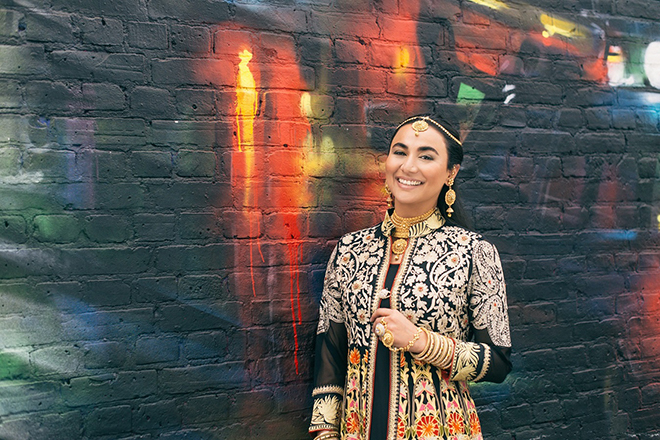
What are your Top 5 favorite albums?
The Miseducation of Lauryn Hill (1998) – Lauryn Hill
Thriller (1982) – Michael Jackson
Dark Sky Island (2015) – Enya
Diamond Life (1984) – Sade
The Soul Sessions (2003) – Joss Stone
Tell us a “pinch me” moment when you thought “Wow, this is really happening to me!”
My first concert was at the iconic Union Chapel in London. The brilliant Talvin Singh OBE was performing with me. The venue was completely full and there was a moment where I took a breath and heard the crowd, with people from all different backgrounds and faiths, singing my hymns—it was beautifully humbling. Since then, I’ve had the opportunity to sing at Houses of Parliament, Trafalgar Square to 20,000 people and I’m about to start recording a new album with the enigmatic Martin ‘Youth’ Glover. I never imagined Kirtan would bring me these experiences.
What is the best advice someone has given you?
Kirtan is traditionally sung by males and within Sikh temples. In 2008, when my first Kirtan album came out, it quickly gained notoriety for its unique and fresh sound. I gained a lot of attention—it was around that time that my mother gifted me with some profound words: “Compliments are a badge of honor for the ego. Don’t internalize the praise this fickle world may throw your way. Remember, you’re not doing this to receive compliments—you are doing this to shower the world with love.”
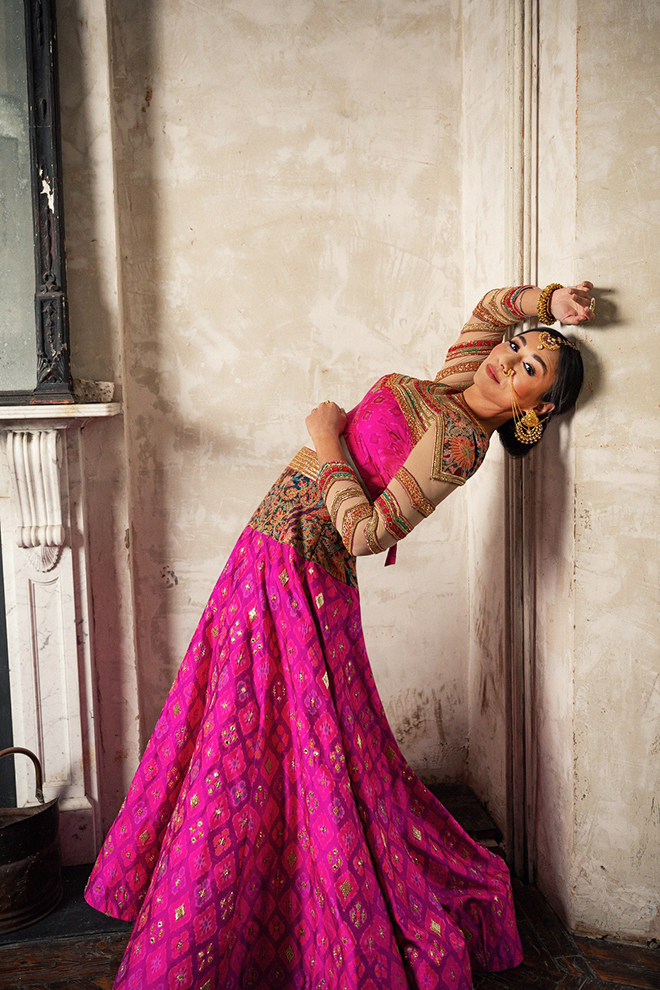
Best advice you’d like to give your teenage self?
As a teen, I wasted so much time worrying about what other people would say. This is a classic example of moving from a place of fear. I wish I had freed myself from that burden much earlier.
Do you remember the first time you heard one of your songs on the radio?
Yes! August 2010—in London, on BBC Radio London. My latest rendition of the “Mool Mantra” was on air when a friend called me—screaming! Since then, I’ve had many opportunities to sing my Kirtan compositions live on mainstream TV and radio—reaching an audience I genuinely did not expect.
Tell us how you decided to work with Scottish folk musician James Yorkston?
James had created a project called Yorkston/Thorne/Khan for Domino Recording. My manager went to see them play live, as he knows Khan. He gave my album to James. We heard that James liked my music, so we asked him to collaborate on a song for my album Sacred Words. Khan has also collaborated on a song in my latest album Ek.
Tell us a little about the “Magic Mantra” video.
The “Mool Mantra” (written by Guru Nanak) often referred to as the “Magic Mantra” brings endless gifts to the one who can immerse themselves in it. In essence, it is the soul’s deepest longing to become one with divinity. For this video, I felt the need to create something to inspire children during a time of lockdowns and uncertainty. Kirtan can be a beautiful vehicle to journey within. So when I created this album I focused on simple melodies in which I could annunciate the words clearly—in a way that vibrates through the cells of the body. Through soothing melodies accompanied by beautiful instrumentation, I hope to remind us all of just what we truly are—stardust, light, unparalleled, spectacular beauty.

How did the uniquely creative 2012 video “Guru Ram Das Rakho Sarnaee” evolve?
Guru Ram Das Ji exemplified humility. He was an orphan who became the fourth Sikh guru and was instrumental in the design and building of the Golden Temple in Amritsar. In the seven years that he was Guru, before his passing, he penned 5,876 lines of inspirational poetic verse. From composing the music to writing the script and connecting with renowned hand-shadowgrapher Amar Sen, my only aim was to create something exquisite to celebrate the beauty that is Guru Ram Das. Artistically expressed through black and white hand-shadowgraphy, the film was truly loved and shared by celebrities in India. It won Best Short Film at the Sikh Arts and Film Festival in California and led to me establishing my own charity and mission Kirtan for Causes. You can see the video at https://www.youtube.com/watch?v=Y4FMOpRSvHo
Tell us about your charity Kirtan for Causes.
It is a non-profit organization. We aim to create beautiful devotional music that creates an atmosphere of peace for the listener, while serving humanity and uplifting communities—through educating impoverished children, building homes and working to understand and meet the needs of communities living in poverty—in order to break the cycle of poverty in Punjab and around the world.
Philanthropy is such an important aspect of your music.
100% of all the proceeds from all my music is donated to charity. Guru Nanak, founder of the Sikh path, asks his followers to live by three principles that will lift the veil of illusion (freedom from ego). The first is to pray and meditate daily, as this connects us to our divine essence—allowing us to live compassionately—and lifts us out of victim mentality (ego). The second is to live and earn money morally and truthfully. The third is to practice charity and to share food and wealth with everyone irrespective of caste, creed, color or sexuality.
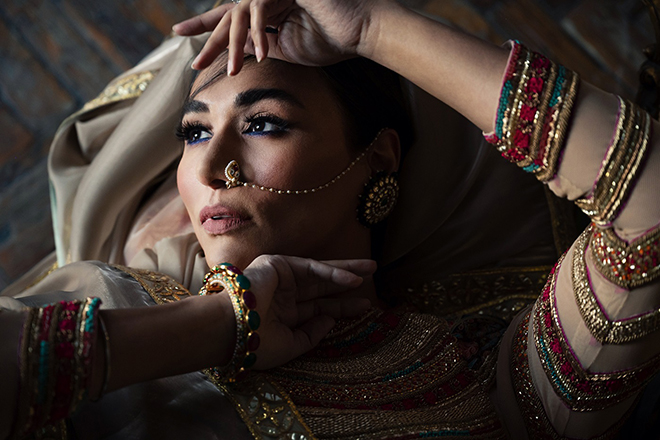
In this unique socio-political climate, how do you remain hopeful?
First, recognize where misery comes from. We are not victims of our situations—we are actually victims of our own thinking. I believe the world is walking towards becoming more compassionate beings. My hope is that this turbulent time will take us there. Fear stops us from connecting to our divine essence. Shut off the news and talk with people—talk with your family around the world. Talk with people you know—and get the truth from them. With my faith, I believe life and death are two points in time—and the soul continues onward. That thought is beautiful. It also helps to pray, meditate and be in the moment. It starts inside you. It’s all about perspective. Everything starts in our own mind. From turbulent times, we are reminded of our humanity—giving opportunity to bring forth our humanity. The highest human experience is to live compassionately.
Where can new fans get more info and stay updated?
www.manikakaur.com
https://www.facebook.com/ManikaKaur/
https://www.youtube.com/ManikaKaur
https://www.instagram.com/manika.kaur/
https://twitter.com/ManikaKaur
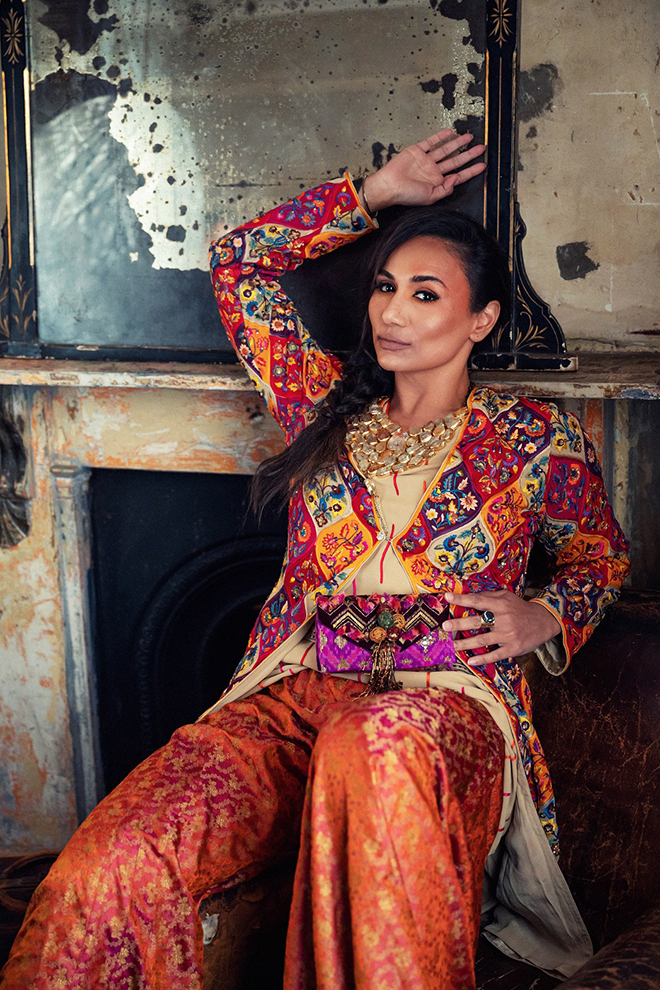



comment closed